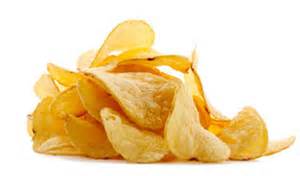In my mother-tongue, there's a word for it. I'm wondering what the English word is.
If potato chips come in contact with humid air (as in rainy days), they lose their crispiness, and become _____________.
Fill in the blank. Note that the chips are eatable and won't cause food poisoning. But neither are they wet because of contact with liquid water. They are just not crispy. In other words, if you take a potato chip and break it, it won't produce any sound of 'cracking'. It'd rather bend :)
I'm not looking for something like 'uncrispy' because it'll serve an all different purpose in this context.
To avoid confusion of chips or fries, this is the picture of what I mean chips here.

